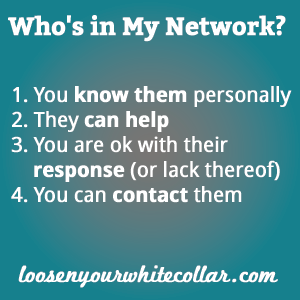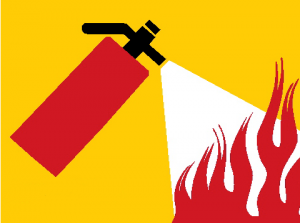Melissa Anzman's Blog, page 2
September 3, 2013
Back to the Grind
 Today, the day after Labor Day in the U.S., could possibly be the most dreaded and awful day of the year. Just the thought of going back to work today probably made you groan – I know it made me groan, and I worked yesterday. But alas, “summer fun” is over and it’s time to get back to the grind.
Today, the day after Labor Day in the U.S., could possibly be the most dreaded and awful day of the year. Just the thought of going back to work today probably made you groan – I know it made me groan, and I worked yesterday. But alas, “summer fun” is over and it’s time to get back to the grind.
It’s Time to Get Moving
We dread today for a reason – it marks the end of summer slacking and vacations, and it marks the beginning of the mad-dash to meet your annual milestones and prove your worth. The pressure is back on, if it ever left, and you have four months to deliver at the highest levels.
If you’re anything like me though, there isn’t a “game on” switch for work. Being disengaged one day and then being fully immersed in outcomes the next day, isn’t easy. Motivation doesn’t come because the world is telling us to “GET BACK TO WORK!”
So perhaps we need a little kick-start or perspective, hmm?
What if I told you that what you do and accomplish during the next four months will have a greater halo effect on how your annual performance is perceived, than the previous eight months combined?
What if I told you that now is the best time for you to prove your value, increase your knowledge base, and elevate your demand?
Or perhaps, if I told you that your future earnings will most likely be based on what happens now?
All of the above is true. Sadly, all of your hard work from the beginning of the year will not matter much, if at all, if you don’t deliver and step-up your game now… which is tied to your compensation for many of you, and your overall “worth” at a company.
The Switch Still Isn’t On
You mean my “truth-bombs” aren’t enough to get you motivated, and have instead reminded you why you’re so unhappy at work? That’s cool – I am right there with you. Until we are ready to turn the switch, let’s start making small gains to getting back into the groove.
1. Remember to reset and reestablish boundaries.
For many, the summer has been filled with fewer meetings, demands, urgent situations, and annoying fire drills. But today has lit a fire under everyone’s butts – so you have to be firm with reestablishing your own boundaries and expectations.
Before automatically accepting meeting requests, make sure that you are needed at the meeting, will be able to add value and/or be the decision maker, and that it is properly scheduled time-wise for what needs to be discussed. Feel free to ask the planner for an agenda and your responsibilities for the meeting to make it as efficient as possible.
2. Start with what you know you can get done.
It’s the same age-old advice that all efficiency experts tell us – if you are able to start knocking the little things off your to-do list, the momentum will flow into bigger projects. So knock those darn little buggers off the list. You know, all of those annoying things that will take you 30 minutes to complete you just haven’t “felt” like doing it. Now is the time to just do them already.
3. Create a new set of milestones to get you to the end.
Whenever I’m resistant to something, I need to create a countdown of sorts to get me there. I did it when I wanted to quit my job and I do it for every big goal I have. You have your map in front of you – your career map and what’s expected of you from your job in the form of your annual goals. Break down the goals into mini-milestones, then schedule those into your calendar.
With one client, she needed to create better relationships with people in her office – she just never spent time around her coworkers which came across as being aloof. So we talked about walking around the office, doing pop-ins, catching up after weekends, and scheduling lunches. All easy things, but they were the first things to fall off her daily list. Until I had her plan them in her calendar as recurring meetings or reminders.
Use the same type of reminder/event to help you achieve the smaller milestones. Give yourself deadlines and stick to them. Momentum breeds momentum.
4. Stop the pressure gap.
Seriously, people freak out this week – it’s like an angry swarm of bees in offices everywhere. Just relax people. It is a busier time, there is more urgency to get everything done before year-end, but don’t let yourself get pulled into the chaos.
I don’t know about you, but I am not able to get motivated when others are breathing down my neck, screaming at me, demanding the impossible, or acting as a distraction. Take a look around you – I’ll wait for you to examine your surroundings… are you back? See their energy? That buzz? Let them freak out while you smile, put your head down, and start small.
When you get your groove back, you can go back into fourth or fifth gear. But for now, it’s ok to be coasting through first and second gears until you feel the spark again. Don’t force it – so it’s on vacation for a few more days? Eh, there are worse things that could happen.
Love what you're reading - want more? Sign-up to work with me one-on-one, and I'll help you get unstuck and fall in love with your job.

August 27, 2013
Going Bat-Sh*t Crazy
 I finally understand this phrase – when you see a bat, you lose your ever-loving mind. At least I did. This past weekend, there was a living, breathing (although injured so not flying so much), bat in my bedroom.
I finally understand this phrase – when you see a bat, you lose your ever-loving mind. At least I did. This past weekend, there was a living, breathing (although injured so not flying so much), bat in my bedroom.
Let me set the scene… it was 11pm, I was in bed with the lights out just about falling asleep when I heard a strange noise. My cat racing across my bedroom in serious pursuit of something then slapping the radiator (the one that broke the weekend before). Then I heard the wings slapping the metal and knew something was seriously off.
When I sat up and turned on my bed-side lamp, I saw a freaking bat inching its way on my floor less than three feet away from me. And I completely lost my sh*t. Think: blood curdling scream at the highest pitch imaginable followed by instant tears and a mini-breakdown.
Bats and I weren’t friends to begin with. I have never liked them. In fact, when I was in the Costa Rican rain forest and the guide wanted to stop to show us sleeping bats, I told him in no uncertain terms that he better avoid that part of the “guide” or else. But having a bat in my bedroom? Invading my space?
I went bat-sh*t crazy.
Let’s just say that I did not act rationally – at all. In fact, I think I reverted back to tween days in that moment. It was terrifying and uncomfortable and I was trapped in my bedroom (after my scream scared him enough to fly out of my room and I slammed the door and put a pillow at the bottom of the door).
I was quite literally, backed into a corner.
Luckily uninvited bats are not a part of our daily lives, but it reminded me of that same feeling when you feel as though you have no options at work. Your boss has given you an ultimatum. Or perhaps he/she has so much control over your success or failure in your role that you have to fall in line. Or as a business owner that feeling of needing to take on work that you don’t really want to because you have to pay your bills or you will get evicted.
Being backed in corner changes your decision making skills. You aren’t nearly as smart as you are in everyday life. Your thoughts aren’t clearly thought-through or planned.
You react. That’s all you know in the moment.
From my own bat-induced corner, I called my parents… who were two hours away. As if my dad would be able to get the bat out of my place. There was no way that I was leaving my bedroom – what if he was right there or flew back into my room? I was beyond irrational and options didn’t readily present themselves.
When I have been frustrated at work in the early days, I felt backed into a corner. I thought there was only one option – quitting immediately. There wasn’t a gray area of trying to make it work – of altering things to make sense or tweaking my own perspective.
So while I do not wish you to have an unexpected visitor in the form of a bat to experience the true meaning of going bat-sh*t crazy, I hope that my experience can help you gain some perspective.
Do you feel backed into a corner? Are you only seeing one alternative? Do you have someone who can help you troubleshoot actual options or swoop in to get the bat out of your place?
And if you’re curious, I called the super of my building, waking him up, and he helped save the day. He coaxed me out of my bedroom to let him in and then I helped to find the hiding back. Of course I found him and freaked the eff out again and ran into my bedroom with a scream and tears. But he got the bat outside for me. An option I never would have considered on my own (thanks Mom).
Yes, I am still jumpy and unsure about what lies behind each corner at the moment, certain that a bat is going to jump out at any time, but at least now I know that if go bat-sh*t crazy again, I will know how to manage it better.
Love what you're reading - want more? Sign-up to work with me one-on-one, and I'll help you get unstuck and fall in love with your job.

August 22, 2013
Practical Tactical Thursday – Who’s In Your Network?
Questioning who is part of your network, is a present-day problem. Before social media and online connectivity, the answer to this was clear – you either knew the person or you didn’t. Now with so many of our connections being virtual, I’ve had many clients seeking clarity on who is IN their network.
Networking Nuggets:
Most people are hired (I believe the number is around 80%), through some sort of networking.
Your family and close friends aren’t your best networks – think of it this way: you are in the exact same circle as they are in. So what they know, you know – and vice versa. They can and will help you, but you are probably already aware of the opportunities that they can provide.
The most important people in your network, are usually at the acquaintance level. They are still within your circle, but are not so closely entangled with your everyday life that they can’t deliver new opportunities.

The Basics of Your Real Network
I could give you the definition of a network, but for our purposes, your network includes the people who can help move your career forward and who you are ready, willing, and able to make an “ask.” So for those thousands of friends you are hoarding on LinkedIn, Facebook, Instagram, etc. – there should be a clear distinction between who you know and if they can help.
How linear you want to be in determining “network opportunity” status, is up to you. Here’s what I have found works best.
General Networking Rules of Thumb
1. You know them personally or have been directly introduced to.
Knowing someone personally doesn’t necessarily mean that you have met them in person. What it does mean, is that you have had an interaction, or better yet – a series of interactions, with the person. You met him/her at an event, at work, or in line; or you have had conversations over Twitter with him/her.
Knowing someone personally means that when they see your name pop up in their email inbox, they are going to have immediate recognition. You don’t have to be besties, but you should have established some sort of connection to consider them in your network.
2. They can provide assistance.
To be included in your career network, the person has to be able to move you closer to your goal, even just a little bit. They can help you with a connection, provide information to you, send along openings that they are aware of, give you insight to any classes/courses you may need, and so on.
Note – providing assistance does not only equal, being able to hire you. Yes, having a hiring manager with an open position in your dream job is a strong contact, but it’s not the only way to consider people “in.” (I just had a Project Runway moment there).
3. You are ok if they respond to your request, or don’t respond to your request.
This is the step that people usually get hung up on. “If Jim doesn’t get back to me or worse, he is upset, I will be mortified!”
I totally get that, and in fact, is usually the path I go down when I’m pondering reaching out to my network. The reality of the situation is that to Jim, it’s probably not a big deal. In fact, he won’t have any reaction to it at all – he’ll either respond, or he won’t. There isn’t a big list of “stupid or annoying” requests that will keep you off the cool list forever.
However, if there is a person that you are worried will change the way they see you or interact with you, then you should reevaluate if this person is considered network-worthy.
In my own network freak-outs, I get nervous about sending out information to people who are more “established” than I am. They are friends, I know them personally, they can provide assistance, but I don’t want to seem… amateur. I hesitate adding them to my reach-out list. Why? Because I value their opinion and don’t want to overuse my asks or leverage too many favors. This type of reasoning, does not fully meet item three! While I am nervous, they can still help – so it’s a personal growth opportunity for me to reach out. I don’t do it often, and I don’t freak out upon their response (or lack thereof), but I have found that they are usually the most supportive!
4. You have an easy way to contact them.
Here’s where my age my show a bit, but Facebook messaging them doesn’t really count as a good way to contact them. Neither does a LinkedIn message for that matter. You should have a solid, honest-to-goodness email address that will land your request in their inbox, or a working telephone number (do not even THINK about texting them), or you have a valid mailing address.
If they are in your network and you have personally connected with them, then you will have the above – or you can easily ask them for it.
Remember that on most social media sites, there’s a way to get their email and/or phone number, so step up and research that instead of reverting to messaging within those networks.
Still not sure they’re “in your network?” If they meet most of the criteria above, it never hurts to make the ask – just be sure you are respectful and follow the guidelines I’ve outlined here.
Love what you're reading - want more? Sign-up to work with me one-on-one, and I'll help you get unstuck and fall in love with your job.

August 19, 2013
Are Your Dreams BIG Enough?
When thinking about your career or business, are you dreaming big enough? Don’t worry – I’m not going to suddenly go all “woo-woo” on you now, but I realized that somewhere along the way, I stopped allowing myself to dream BIG. And if I’m doing it, I bet some of you are as well.

Back in the Day, Dreaming
When I was a young kid, I remember thinking that truly anything was possible. I could do anything, I could be anything. At that time, I wanted to be an Olympic-level gymnast. It’s what seemed possible. I was training hard, spending more time in the gym than anywhere else, and was winning awards at top events.
There wasn’t a question in my mind that I couldn’t do. It’s what I wanted – it was my BIG dream. And I knew exactly how to get there. Hard work, dedication, and keeping “the dream” alive.
But I gave up on that dream. I won’t go into all of the gory details about it, but circumstances (outside of my control) led me to literally turn my back on that dream.
I kept on dreaming big though. My next set of dreams was about college and academic achievement. I wanted to be “smart,” earn good grades, and be responsible. So I went after that dream aggressively – I was a Resident Assistant (yes, the dreaded RA), then Resident Director, and graduated a semester early. That dream easily fit into what I was doing… so it happened.
Enter Corporate Life
I am not sure if I stopped dreaming when I entered corporate life, or if my dreams were just more easily conceptualized. There is a very set path or ladder. You enter at the bottom, you see where the top is, and there are several steps along the way to help get you there.
I know that the corporate ladder is usually not a straight line path to the top – in fact, it shouldn’t be. But I was able to dream with the goal of being the CEO, or more “realistically,” a direct-report of the CEO’s. With that in mind, I let go of any other types of dreams when it came to my work – I knew what the desired end result was, and started doing everything in my power to get there as quickly as I could.
And while I was busy focusing on achieving that, I stopped dreaming. Really dreaming. I had a goal, but I didn’t allow myself to think BIG. I just kept moving forward. Until I couldn’t – and then I dreamed of being my own boss.
The Entrepreneur Dream Begins
I won’t rehash the lack of direction I had when I quit my corporate job the first time around – you know all about that already. But I finally had DREAMS that time around – I have a vision of what I wanted, who I wanted to be like, what I wanted to be known for, how BIG it would all be.
It wasn’t “realistic” by any stretch of the imagination. It wasn’t an easy dream. It was big and scary and all about how much buzz I could get, how much money I could earn, how well-known I’d become. (I know, it doesn’t really sound like me anymore).
My second stab at entrepreneurship, was much different. Instead of dreaming big, I only allowed myself to be realistic. When family members told me that I should be the “next Suze Orman,” or asking me why “I wasn’t featured on The Today Show?” I had this response ready:
“I don’t want to be the next Suze Orman. Do you know how ridiculous it is to think I could be that big? And The Today Show – who are you kidding? That show is the hardest one to get on – you’re not being realistic.”
For the last year, this is the assumption I’ve been working under. My dreams were small – I wanted to work with awesome clients, I wanted to earn a living to cover my expenses, I wanted to make a difference in people’s lives, and I wanted to be my own boss. That was it.
And this past week, while I’ve already been working on a great new project (more details to come soon – promise), I was chatting with one of my friends who told me her amazing business growth plan. It was incredible – she had BIG dreams for it, all of which she’s making happen!
I was impressed, excited for her, and of course… totally bummed out for me. I didn’t have anything BIG to share. I didn’t have a larger vision for my own business. I left a lot on the table. My vision was extremely short-sighted. I completely left big audiences, ideas, actionables off the table.
Because I was afraid to dream big.
When you work for yourself, while I would advise you to not take everything so personal, it IS personal. So any big win or big failure, you feel it at your core. And I have had so many “failures,” that I started building BIG protective walls – and told myself what was appropriate to dream about and what wasn’t realistic.
Just another way that I’ve continued to let others’ expectations dictate what was possible for me.
It’s Time to Starting Dreaming Again
Yep, I’ve officially declared dreaming BIG, back on! It’s time that we stop being comfortable in our situations, and being afraid of what we can achieve. Or as I call it, GAME ON!
Ready to join me? I’d love to hear what your BIG dreams are – and/or how you’re going to start giving yourself permission to think BIG.
Love what you're reading - want more? Sign-up to work with me one-on-one, and I'll help you get unstuck and fall in love with your job.

August 12, 2013
Responding to Negative Nellies: New on LAC
 People love giving feedback to others – it’s a way for us to interact, connect, and feel as though we are part of something. But feedback can be a hard pill to swallow, especially when it isn’t as positive as you hoped, or ahem, shall I say “constructive?” I learned that lesson the hard way recently.
People love giving feedback to others – it’s a way for us to interact, connect, and feel as though we are part of something. But feedback can be a hard pill to swallow, especially when it isn’t as positive as you hoped, or ahem, shall I say “constructive?” I learned that lesson the hard way recently.
When Negative Nellies Attack
A few weeks ago, I had the opportunity to speak to someone who I have looked up to and admired for a long time. It was a great conversation, until she dropped a feedback bomb on me. I was explaining some of the launch projects I was working on with my clients, and her response, “Oh, so you’re basically a glorified virtual assistant then?”
Gasp. I was beyond horrified. I was crushed. I may have stumbled out a response of “not really,” but honestly, I was so shocked, that I can hardly remember the rest of the conversation.
I’m not someone who has cared much about other’s opinions or feedback in the past. To be fully transparent, there aren’t many people whose feedback I truly value, so it’s usually not very difficult for me to bounce back from any type of negative comments.
But this time was different. I valued her opinion. I cared about what her perception of me was. Iwanted her to as positive about it as I was feeling up to that point. And since she was so flippant about it, it paralyzed me for a good week… I was bummed out, unsure of what I was doing, and started questioning everything that I had planned.
4 Steps to Manage Negative Nellies’ Opinions
Sadly, whether you are in business for yourself or work in a corporate job (and everything in between), you are going to run into Negative Nellies in the form of opinions and feedback. Here’s how to work through it and come out the other side stronger than before.
Continue reading on Life After College…
Love what you're reading - want more? Sign-up to work with me one-on-one, and I'll help you get unstuck and fall in love with your job.

August 8, 2013
Practical Tactical Thursday – Key Accomplishments
 Showing what you can do in a potential role through your resume and other materials, is critical to being passed on to the next round. Not only does your resume want to say you want to be friends, but you want to be sure to showcase your key accomplishments throughout the hiring process.
Showing what you can do in a potential role through your resume and other materials, is critical to being passed on to the next round. Not only does your resume want to say you want to be friends, but you want to be sure to showcase your key accomplishments throughout the hiring process.
Sounds simple enough, right?
Except many of my clients have a difficult time figuring out just what they have accomplished in previous roles. For most of us, we may easily recognize a few metric-driven examples: I increased sales by 25% in a three month period; I restructured a department to save $10k, and so on.
But two or three accomplishments doesn’t paint a very complete picture over time. Don’t worry – I know that you have more accomplishments just waiting to show itself. Here’s how you will find them.
What is a Key Accomplishment?
At its core, a key accomplishment showcases a specific skill and delivery that you utilized in a role. It’s showing the hiring manager what you have done.
But before I show you how to implement then, let’s talk about what key accomplishments are not:
Your job description
A list of things that you do on a daily basis in your role
Actions or things that “everyone” can do
Things that lack a “wow” factor
Key accomplishments are BIG. They are the actions, projects, milestones that take consistent work. Usually key accomplishments can be determined by your annual goals/milestones. They are things that are of high importance to your company and to the business. They are usually tied to improvement, efficiency, deliverables, or breakthroughs.
They are the actions that you are known for in your job. It’s what your specialty is. It’s what makes you “irreplaceable.”
Make a list of all of the things that you do in each role, that are not “everyday” things. Think outside of your job description – what do you do beyond answering the phone, responding to emails, or running a report?
For each item, see if it passes the litmus test by answering:
How did this impact the business?
Was it well-received by my boss and management?
Was this duty/activity/project important to my overall success and performance in my role?
Turn it into a measurable statement. This is the tricky part, as not every accomplishment has a metric tied to it, but push yourself to get it there.
Remember to answer the SO WHAT question – a measurable statement easily does this for you by showing where it was, to where it is today because of your work.
When all else fails, consider parts of your job that come very easily to you. What feels second nature to you, but others struggle with? What types of activities does the company depend on you to do or deliver? These are all components that make you uniquely qualified for positions – leverage it as much as possible on your resume materials.
Love what you're reading - want more? Sign-up to work with me one-on-one, and I'll help you get unstuck and fall in love with your job.

August 6, 2013
Fire Drills at Work
 The alarm starts blaring and your entire 5th grade class covers their ears and then promptly lines up to quickly exit the building without talking and staying in a single-file line, to go to your designated spot in the parking lot for roll call. That’s a fire drill… right?
The alarm starts blaring and your entire 5th grade class covers their ears and then promptly lines up to quickly exit the building without talking and staying in a single-file line, to go to your designated spot in the parking lot for roll call. That’s a fire drill… right?
Until you grow up, get a job (or create your own job), and learn that your definition of a fire drill is vastly different than the ones in real life. At work, not everything can be planned in advance, nor work out perfectly – I’d say that would be dreamy, but really it would be boring. But when you get an urgent email telling you that something happened and needs to be dealt with RIGHT.THIS.MINUTE, you take a deep breath and say, “Here goes another fire drill.”
Fire Drills at Work are Painful
I wish I could share all of the fire drills that I’ve had at work, but the list is too long to remember. There was the one time that my boss approved an ad with the wrong hospital name associated with it, and it ran front and center in The New York Times. Another one occurred when an employee broke into the CEO’s personal residence and spent the night. Or perhaps I should share the time when an employee I just had to let go, due to sexual harassment, locked himself in the executive-floor bathroom?
Most fire drills that we encounter at work aren’t as BIG as the examples above. Usually it is a forgotten detail, or a person who wasn’t looped in, or a missed deadline, or a confusion of duties. A majority of the time, fire drills aren’t that serious – even if your heart starts pumping fast and the adrenaline is freely flowing.
Fire drills annoy me. I’m sure they annoy you too. But how you manage fire drills in your career, is a critical skill as you advance. Most CEO’s I know, are excellent fire-fighters… not necessarily tactical geniuses.
How to Put Out the Fire
1. Ask yourself, “Is this really a big deal or is it being blow out of proportion?”
They saying, “Your fire does not create my fire drill,” holds true. I’m not saying be a jerk about the situation, but just because someone else is panicking over something, does not mean that you need to. In fact, most of other people’s fire drills fall into this category. When it’s your problem, you will be the person thinking this is a HUGE deal.
Check yourself before creating a plan or taking action. If it IS a big deal, such as the examples I shared above, then it needs to be prioritized to the top of your list. If it is less impactful, still prioritize it, but your reaction should be vastly different.
2. Analyze the situation and impact.
This is an old PR/crisis communications trick. You must know exactly what you are dealing with, in order to be able to minimize the damage. Before you start responding to emails, getting your blood pressure up, or taking action – give yourself a mini-pause, to answer these questions:
How widespread is this situation?
How will the business/person be impacted by this?
What are three different ways to solving the situation?
What types of communication and actions are needed to rectify the situation?
Am I truly the best person to handle the situation?
3. Don’t throw water on the flames if you need an extinguisher.
The last thing you want to do is make the situation worse. In a high-intensity situation, our decision-making skills aren’t always at their highest standard. Fully think through your next action.
In the misprinted ad above for example, the knee-jerk reaction is to apologize to the client and start promising the world to make it better, all while hiding under your desk. But will an apology when it is so fresh, do anything except rub salt in the wound? Are you authorized to provide the world to the client?
Your innocent and helpful actions can easily make things worse without intending to. Fully understand the various angles of your response and the players, before trouble-shooting.
4. What does the client want to offset the fire?
In a fire drill, most people forget to ask this question – and yet, it is the most important one to ask. Whether it’s your boss or an external client, when an urgent demand is presented to you, be sure to ask what the desired result is for them.
In the breaking and entering example, my desired result was to fire the employee (long story) and have him arrested. If I would have acted on my fire-extinguishing plan, I could have been the one without a job! The CEO had a different plan in mind, really just a pre-amble to my plan, but it was critical to him to feel as though the situation was handled.
5. Post-fire investigation.
As annoying as fire drills can be, it irks me more to continue to encounter the same drills over and over again. After every fire drill – big or small, investigate what happened and why it happened, so you don’t have to deal with it again. Where’s the fun in fighting the same fires?
In my bathroom-hiding example, not only was it extremely embarrassing (hello – me standing outside of the men’s bathroom with the C-suite looking on trying to plead with him to come out), but it was potentially dangerous to all of the people on the floor. Once it was over, our team met with security to discuss a new process to eliminate this type of fire for good.
Make sure you create or update any needed systems or double-checks or policies that failed you during this process. And then have a nice drink, so you can fight another fire tomorrow.
Have any BIG fire drill stories? I would love to hear about your fire drills – big and small!
Love what you're reading - want more? Sign-up to work with me one-on-one, and I'll help you get unstuck and fall in love with your job.

August 1, 2013
Ask the Internet – Where to Live Next

Hello peeps! My time in the amazing Colorado Rockies is coming to an end soon unfortunately, and I need to find a new city to hang my hat. In my last seven city moves, it hasn’t typically been difficult to pinpoint where I was going – work moved me, I had a good friend in a location, cost of living, or so on.
That is, until now. I am without a clue as to where to go next so I need YOUR help. Help me find my new city! (Yes, that means that you, my readers, are going to choose my next stop!)
Below are some things that I’m looking for, if your city or one you know, meets all (or some) of the criteria, please leave a note below or email me at melissa (at) loosenyourwhitecollar (dot) com.
Criteria:
Four seasons are preferred; cold weather prevails (in other words, as much as I love visiting Arizona, Hawaii, and Florida – they are not ideal for me to live). I love snow, loathe rain and heat/humidity.
Decent cost of living as I’ll be renting
Small, medium or large city or town, but not a suburb (I’m convinced there is a difference!)
Young-ish population; entrepreneurial community (even if it’s small)
Near to mountains or water
Must be within the U.S. (for now)
That’s about it. See why this is so hard?
And if it’s helpful, here are the places I’ve already lived:
Denver, CO –> off the list
Madison, WI
New York/New Jersey
San Diego, CA –> off the list
Mountain View, CA
Atlanta, GA
Copper Mountain, CO
Please help me out!!! And we’ll narrow them down here and then YOU will choose my next home. Comment below to tell me where you think I should go and share with your friends – the more suggestions, the better!
Love what you're reading - want more? Sign-up to work with me one-on-one, and I'll help you get unstuck and fall in love with your job.

July 30, 2013
Being Able to Walk Away from an Offer
 Earlier in my career, I always felt lucky to just have a job. That was before the economy turned to crap and jobs were harder to find. I never thought about the long-term trajectory of the skills that I wanted to use and leverage during my career, or what brought me joy. My goal was simple: be employed, earn a lot of money, and move up the ladder.
Earlier in my career, I always felt lucky to just have a job. That was before the economy turned to crap and jobs were harder to find. I never thought about the long-term trajectory of the skills that I wanted to use and leverage during my career, or what brought me joy. My goal was simple: be employed, earn a lot of money, and move up the ladder.
Let’s just say that I went through a LOT of jobs during those years. I was an apply and interview queen. If a company was a well-known name and they wanted me, then I said yes. Always.
At some point in 2010 when the idea of starting my own business, becoming my own boss, started to become a real possibility, my attitude to saying yes to companies shifted, dramatically. I can’t pinpoint what happened exactly, but perhaps for the first time I realized my own value to a company… not the other way around.
It’s Ok to Walk Away
I still applied and interviewed at what would be considered, for many, dream companies. Think: Silicon Valley’s biggest names and “cool places” to work. I applied, interviewed, and was offered a few awesome roles.
But I said no to all of them.
I know, why continue interviewing if you are just going to turn the biggest names down? In my defense, that wasn’t my intent – I was truly interested in each and every company I applied and interviewed for. My approach to the interview process this time around was just different – I was focused on me and my career, instead of just saying YES to a cool offer.
For each role I walked away from, I wanted to know exactly why I wasn’t interested. Here was my list (one bullet per offer I said no to):
The team just felt… off; I wasn’t gelling with them and got a very strong feeling that one of my would-be colleagues was pissed she didn’t get the role.
I thought about what my work/life balance and stress level would be like in such a big and highly visible role, and realized that was my work path of the past – I didn’t want that moving forward.
There was just too much movement, change, and turmoil post-reorg to want to jump-in fully without having to fight the same battles I had to fight in my (then) current role.
The hiring manager was hours late to a call we had scheduled to coordinate last details. She didn’t call, didn’t write, or give me the common courtesy of being late. I didn’t want to deal with that type of manager.
In other words, I walked away from some big name companies because accepting a position there, at that time, wasn’t in my best interests.
Was it easy? Hell no – I second guessed every single one of those decisions. My friends and family never stopped giving me grief about it. It was the year of calling Melissa a moron – seriously, they weren’t thrilled. I mean “everyone” dreamed of working at each of those companies, and who the heck was I to say no to them?
But I did. And the world didn’t end. I didn’t end up homeless or destitute. I was still hirable. I still owned the skills that made me desirable to those companies. And I left things on such a good note with the companies, that in the intervening years, I have actually received calls from several of them seeing if I’ve changed my mind, or would be interested in something else there.
don’t just say yes to a job or opportunity because it is presented to you.
You always have a choice – and something else will come around if the offer on the table doesn’t feel right.
Money worries can get in the way of passing off an offer – I get it, believe me. But you always have options… instead of accepting a less than perfect position and being miserable in it for years to come, perhaps you can approach the opportunity with a Bridge Job mentality. Or see if there’s a contract position available – that way you can test out the job/company and they can do the same for you.
Regardless, don’t say yes just because you were offered something. Consider the position, your skills, potential for growth, your balance scale, and long-term goals, before blindly saying “I accept!”
Love what you're reading - want more? Sign-up to work with me one-on-one, and I'll help you get unstuck and fall in love with your job.

July 25, 2013
Practical Tactical Thursday – The Most Annoying Question You’re Asking in an Interview
 I’m not sure when it started or who thought it would be a good closing statement, but it’s time you stopped asking the most annoying question during an interview:
I’m not sure when it started or who thought it would be a good closing statement, but it’s time you stopped asking the most annoying question during an interview:
“What do you think of my candidacy? Will you be passing me along to the next round?”
It sounds benign. I mean, of course you want to know if the interviewer feels that you are qualified for the job, if you have a chance to continue on to the next round. But what are you expecting the interviewer to actually say to you?
You are making the most annoying mistake – putting the interviewer on the spot. Most people aren’t going to tell you that you’re an awful candidate and if they say they are sending you along, they don’t want to give you false hope.
The process is simple – the interviewer, let’s just say the recruiter, is either going to think you are qualified to be considered as a candidate or not. But that’s about all the say they have in the process. They either pass your resume along to the hiring manager… or not. Who the hiring manager decides to interview or feels is a good fit for what he/she is seeking, is what propels you to the next round.
Even if you were the recruiter’s favorite candidate, the hiring manager may take one look at your resume and think you are lacking a huge skillset or necessary qualification. So regardless if the recruiter passes your resume along or not, you may not ever get the next interview.
What you really want to know is… is there still hope for me in this role?
In order to get to that answer, ditch the whole “sending me along” question (and variations of it). It’s annoying and it’s always difficult for the recruiter to answer. Instead, here are a few questions to replace that with throughout the interview. Note: don’t wait until the end of the conversation to ask these questions, and notice that each one also provides YOU with critical information about the company as well.
Could you share with me the background or skillsets that people who excel in this role, tend to have?
What type of experience in particular, is the hiring manager seeking? (Depending on the role, add some more qualifiers here – projects, software, actions, and so on)
What type of experience is valued as part of the company’s culture?
Would you say that direct application of skills or years of experience is more important for this role?
What type of personality would thrive in this role?
Before the interview closes out, make sure you know clearly what the next steps are and what the timeline looks like. This is your closing out question if it hasn’t already been answered:
“I really enjoyed speaking with you to learn more about XX position. I’m very interested in the position – what is the expected next steps and timeline?”
Yep, it’s really that simple. Based on the recruiter’s response, you will garner a few things:
Their interview process: the more in-depth he/she goes about the process and next-steps, the better chance you have of “being passed along.”
Their eagerness to hire: based on the timeline they provide, you will know if they are “serious” about getting someone in the role or not. If you will hear back from the within the next two weeks – game on. If their timeframe is a bit longer, you know that they are either not that excited about you as a candidate or they are taking their time to speak with everyone under the sun.
When to follow-up: you will be told exactly when you should hear back from them. If you don’t, that means that you need to reach out to them. If they said you’ll be hearing from them by early next week and it’s Thursday, it’s time for you to send an email. You only need to follow-up once, and after that, their response (or lack thereof), will help you put the position on your still in the running or a no go list.
Love what you're reading - want more? Sign-up to work with me one-on-one, and I'll help you get unstuck and fall in love with your job.




